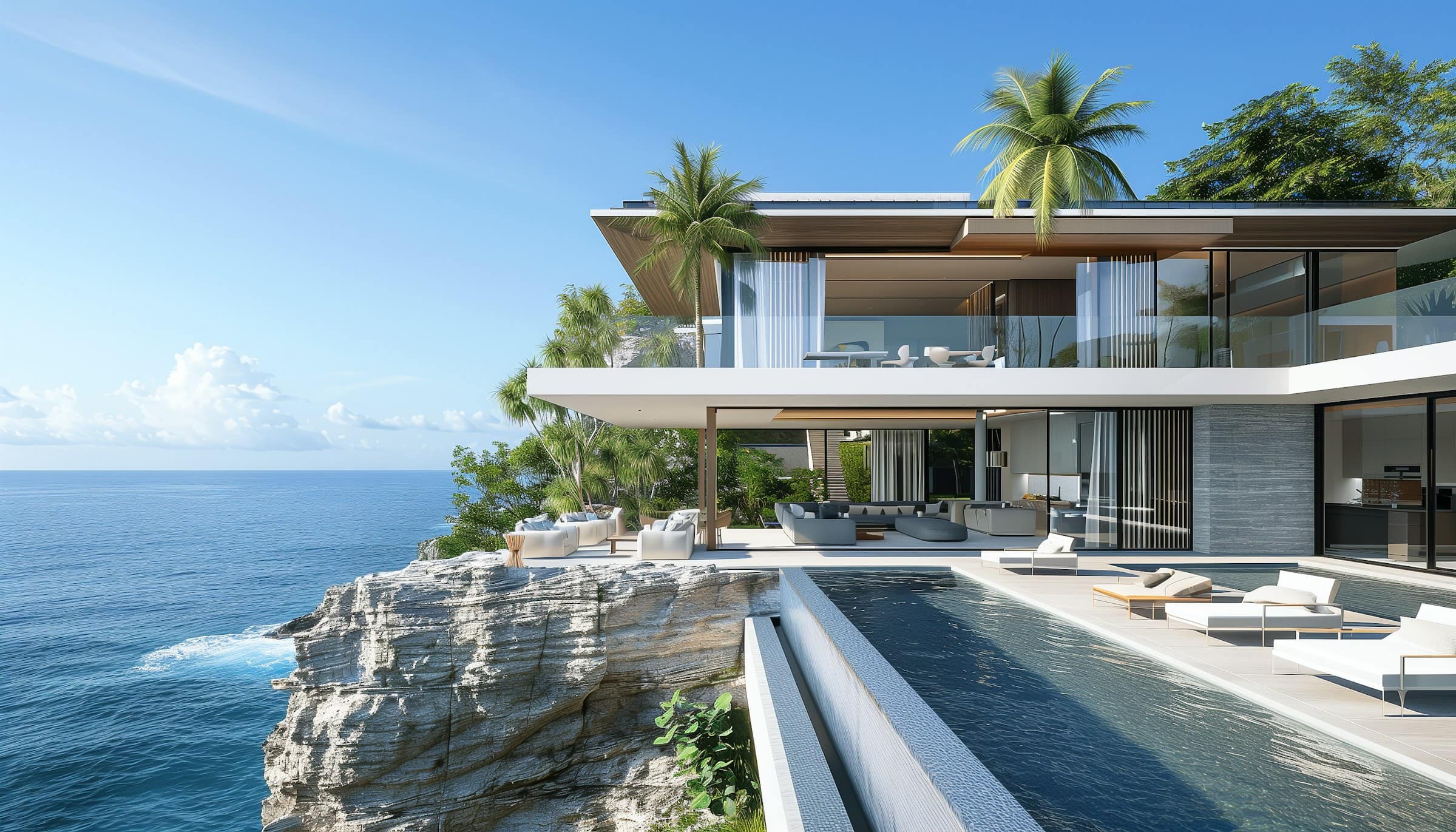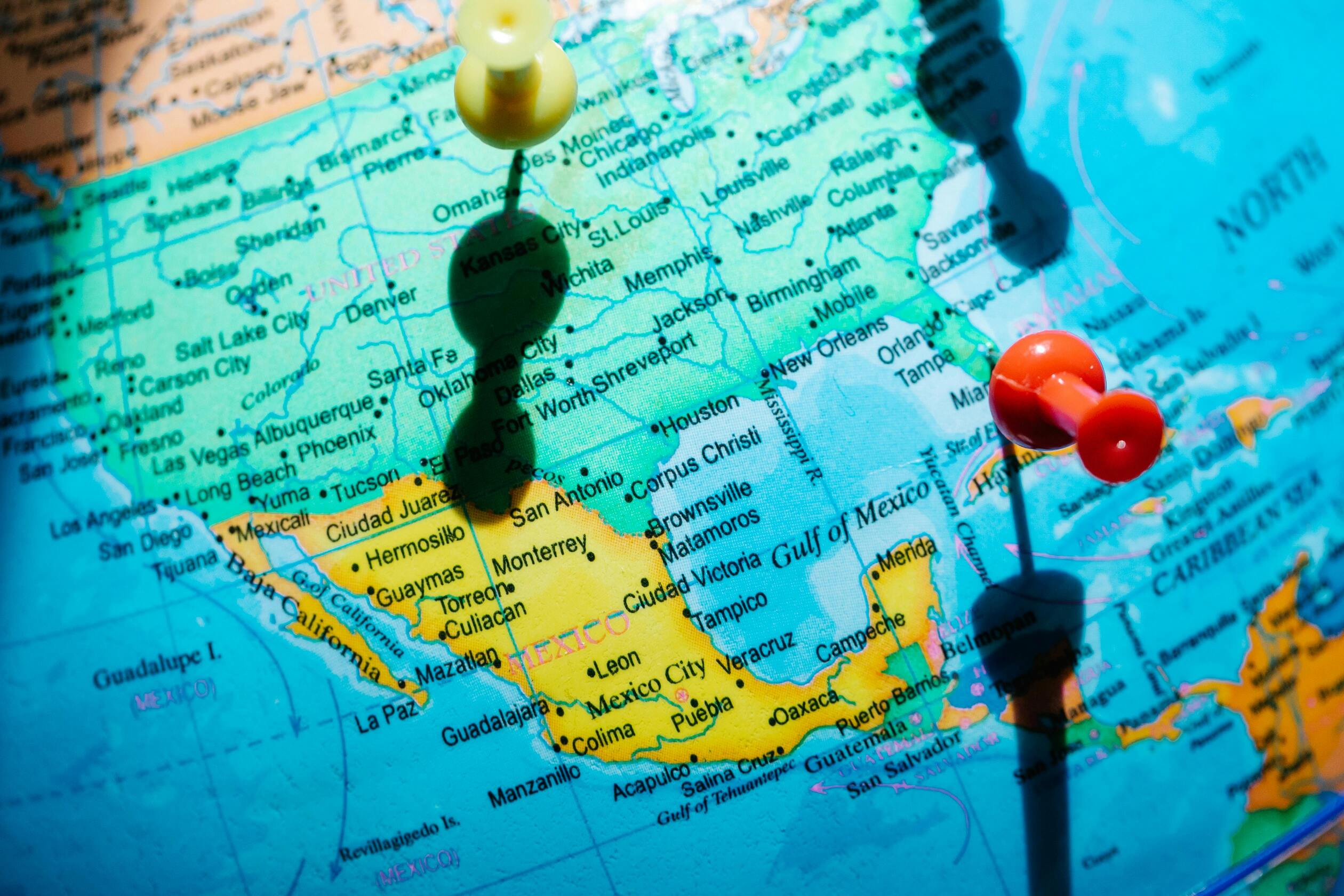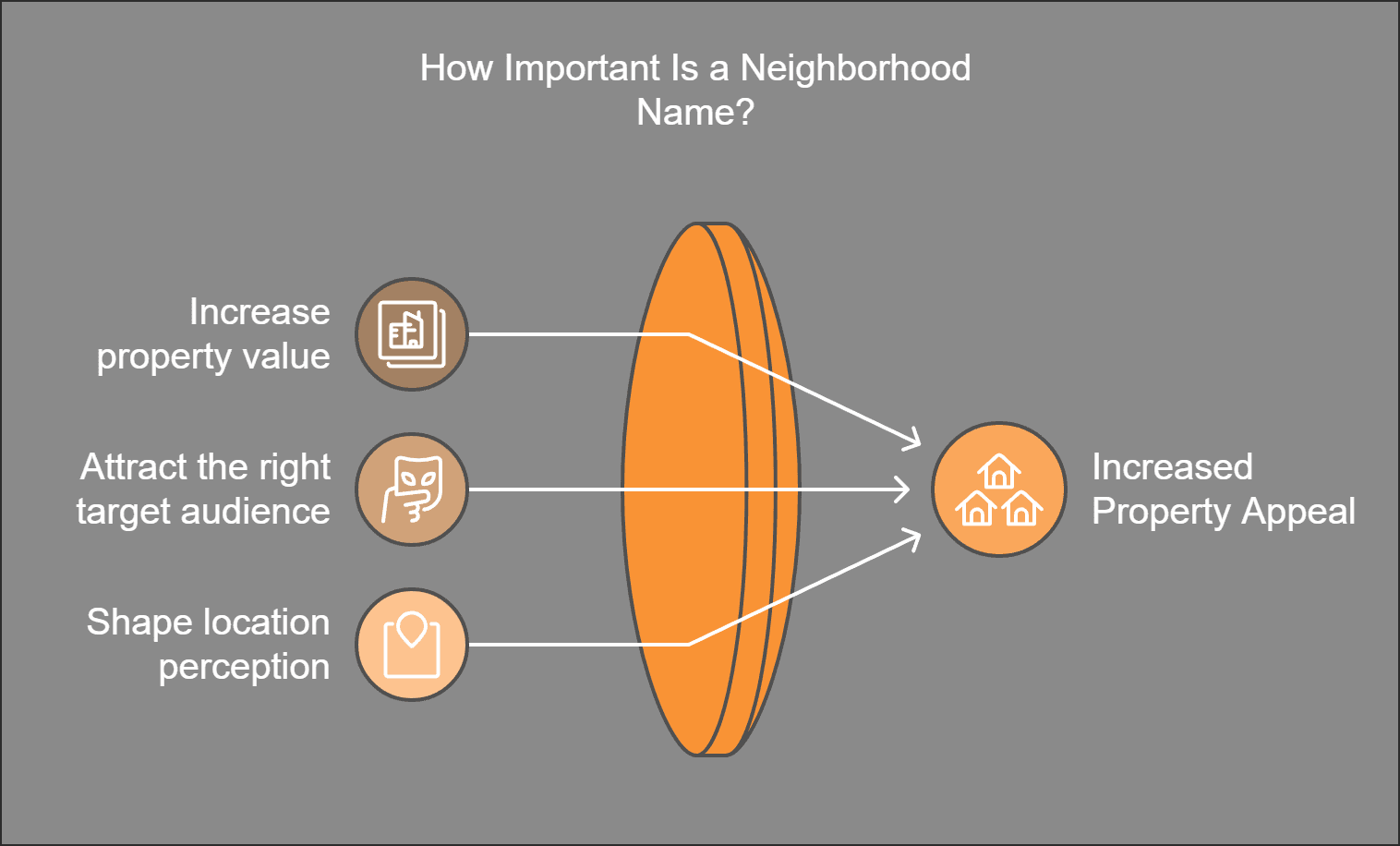
50 Real Estate Project Names - from Around the World
...
Learn how the right neighborhood name in the USA can increase property value. Discover the secrets of effective location branding for real estate developers in the United States.
Can a neighborhood name influence property values or attract people with a certain income level?
It turns out it can.
Neighborhood names in the USA are often associated with specific lifestyles, prestige, and even income levels.
And although this might sound like a curiosity, it's a serious topic for property developers and investors. Why?
Because a well-chosen neighborhood name can affect property values and attract the desired target audience.
In this article, we’ll explore how neighborhood names impact resident income levels and how they vary across different states.
We’ll also examine what this means for investors and developers.

Names like "The Heights," "Estates," "Hills," or "Gardens" immediately suggest luxury and space.
These are especially popular in states like California, New York, and Florida, where they often denote exclusive, high-priced neighborhoods.
Such names appeal to the imagination of potential buyers, suggesting that living there is a symbol of success. People want to live in places that sound exclusive—and they’re willing to pay more for that prestige.
Names like "Lakeview," "Woodland," "Forest Glen," or "River Oaks" attract people seeking a peaceful environment close to nature. These names generally signal areas with moderate to high income levels but are not necessarily ultra-luxurious.
Such names are popular in suburban areas and in states with plenty of green spaces, such as Washington, Oregon, and Colorado. For developers, giving a community a “natural” name can attract families and individuals looking for an escape from city life.
Neighborhoods with names like "Old Town," "Historic District," or "Village" often attract upper-middle-class and higher-income individuals who value tradition and history.
These are often areas with historic homes, which increases their appeal, particularly in states like Massachusetts, Virginia, and Pennsylvania.
For developers investing in the revitalization of older areas, the right name can help attract affluent buyers interested in tradition and culture.
In some areas of the USA, you’ll find neighborhoods with names like "Parkview," "Maple Street," or "Greenfield."
These names are less pretentious and are often associated with areas of lower to middle income levels. They attract people looking for stable, affordable homes, which can be important for investors operating in competitive price-sensitive markets.


In states like California and New York, prestigious neighborhoods with names like "Beverly Hills" or "Upper East Side" have long been associated with the highest income levels. By choosing an appropriate name for new projects, developers can aspire to this level of prestige and attract buyers willing to pay for a location’s brand.
In recent years, states like Texas and Florida have seen a rise in luxury suburban neighborhoods. Developers are eager to give these areas names like "The Oaks" or "Grand Estates," which suggest luxury but also accessibility for the upper-middle class. In these states, names can help distinguish more prestigious suburbs from less expensive areas.
In Midwestern states such as Ohio, Michigan, and Wisconsin, simpler names suggesting affordability, like "Riverside" or "Parkview," are more popular. These tend to be more affordable places, attracting working- and middle-class families. Investors in these areas might consider names that are not pretentious but resonate with stability.

The choice of a name for a new community or neighborhood is more than just an aesthetic decision—it’s one that can actually impact the appeal of a property investment.
A well-chosen name can:
For developers contemplating name selection, it’s crucial to consider both the investment's character and the local market. The name should be not only catchy but also resonate with the expectations of potential residents.
Yes, a neighborhood name can affect property values, especially if it’s associated with prestige, luxury, or nature. Developers often use this to increase the appeal of their investments.
No, the name can be important in both large cities and in suburbs or smaller towns. In every case, it can help in creating a neighborhood’s image and attracting a specific target group.
Currently, names suggesting luxury (e.g., "Estates," "Heights") and those inspired by nature (e.g., "Lakeview," "Woodland") are popular. These trends are visible across many states and are often used by developers aiming to attract wealthier buyers.
Book a free consultation.
Sign up now for our free RendProletter and receive 1 email every week with a short summary of the best posts from our blog and emails with unique offers you won't find anywhere else!